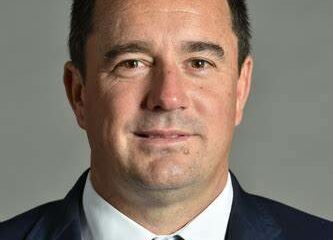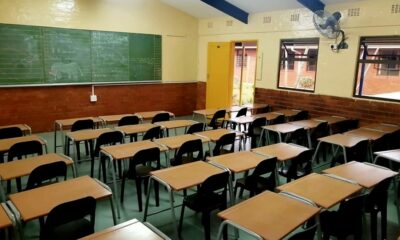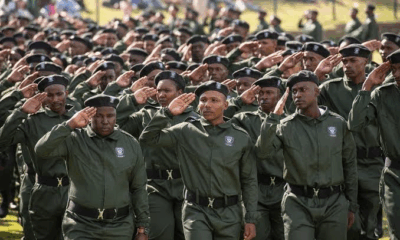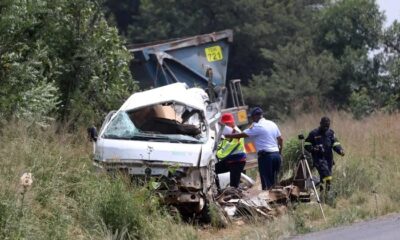News
Public Fury as Gauteng Slashes Funding for Former Model C Schools: Parents, Unions and Civil Groups Push Back

Public Outcry as Gauteng Slashes School Funding by 60%
A storm is brewing in Gauteng’s education sector after the provincial government confirmed massive funding cuts to former Model C schools, a move that parents, teachers, and civil society groups say could push schools and families to the brink.
From April 2026, at least 600 schools across Gauteng will receive over 60% less in state subsidies, with per-learner funding slashed from R879 to R315. The Gauteng Department of Education (GDE) insists this adjustment aligns with national budget constraints, but critics argue it’s an “education crisis in the making.”
“Reckless and Invalid”: DA Threatens Legal Action
The Democratic Alliance (DA) in Gauteng has described the decision as reckless and unlawful, saying it was communicated far too late for schools to plan their budgets responsibly.
“This decision is not only invalid but also reckless and likely to harm thousands of learners in Gauteng,” said DA education spokesperson Sergio Isa Dos Santos, who confirmed that the party is considering legal action against the department.
Dos Santos added that School Governing Bodies (SGBs) had already drawn up their 2026 budgets based on the higher subsidy, leaving many with unexpected shortfalls.
“Schools are now forced to increase fees, placing even more financial pressure on families,” he warned.
The DA also criticised the GDE for allegedly notifying schools after the legislated deadline of 30 September 2025, saying the delay created unnecessary chaos for principals and parents trying to balance already strained finances.
Equal Education: “A Blow to Poor Learners”
Civil society group Equal Education joined the chorus of condemnation, warning that the drastic cuts will widen inequality in Gauteng’s schooling system.
“The cut in subsidies is drastic and will badly affect learners, especially those from poorer households attending these schools,” said Mahfouz Rafee from Equal Education.
The group noted that many former Model C schools, while classified as Quintile 4 or 5 (typically better-resourced schools), serve a growing number of low- and middle-income families who rely on state support to keep fees affordable.
Government Defends the Move: “We’re Working Within Budget Reality”
The GDE has stood firm. Spokesperson Steve Mabona said the department acted within the law, insisting that the Head of Department (HoD) signed off on the budget allocations by the required deadline.
Mabona pointed to National Treasury’s ongoing fiscal consolidation as the root cause, saying provinces are under pressure to reprioritise spending due to budget shortfalls in the 2026/27 cycle.
“No additional funding was allocated, so the department adjusted allocations for Quintile 5 schools to match those of Quintile 4,” Mabona explained.
He added that the department’s decision aligns with Department of Basic Education (DBE) national guidelines, which currently recommend R315 per learner for those quintiles.
The Bigger Picture: A System Under Strain
Education analysts say this dispute highlights a deeper structural issue, the ongoing squeeze on public education budgets amid South Africa’s wider economic slowdown.
Since 2021, Treasury’s budget ceilings have forced provinces to scale back spending, affecting everything from teacher posts to infrastructure projects. But for former Model C schools, which already rely heavily on parent-paid fees, this 60% cut could prove devastating.
Many fear a domino effect: rising school fees, growing inequality between schools, and an exodus of learners from mid-tier public institutions.
Social media has lit up with frustrated parents calling the decision “a slap in the face” for families trying to keep children in quality public schools. Others worry it will push even more pressure onto struggling township and rural schools as parents seek alternatives.
A Call for Dialogue Before the Damage Deepens
While the department insists its hands are tied by budget constraints, opposition parties and education activists are calling for an urgent review before schools are forced to raise fees or retrench staff.
In a province already battling overcrowded classrooms, underpaid teachers, and infrastructure backlogs, this latest cut feels, to many, like another blow to South Africa’s dream of equal education.
As one parent commented in a local school WhatsApp group:
“We just want our kids to learn in peace, not pay the price for government’s poor planning.”
{Source: IOL}
Follow Joburg ETC on Facebook, Twitter , TikTok and Instagram
For more News in Johannesburg, visit joburgetc.com



























